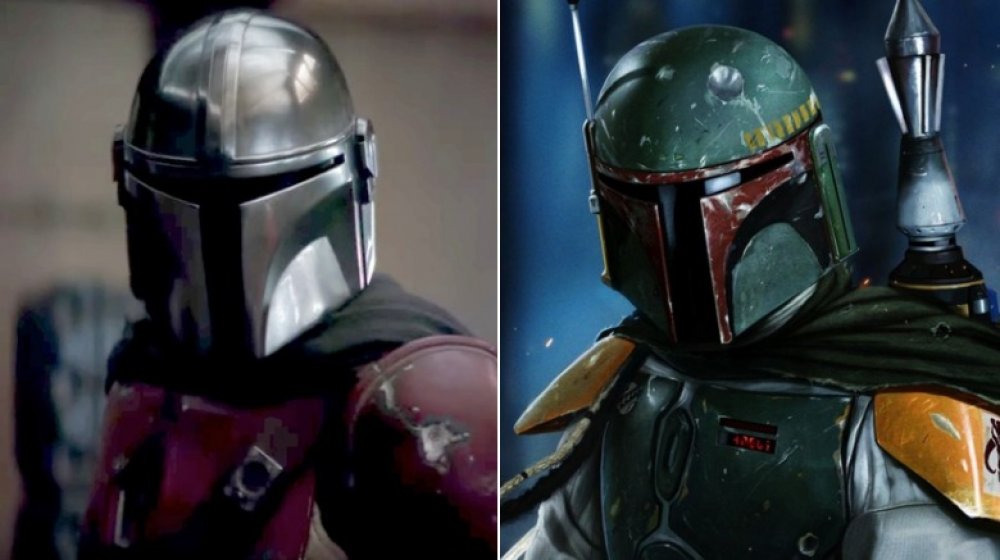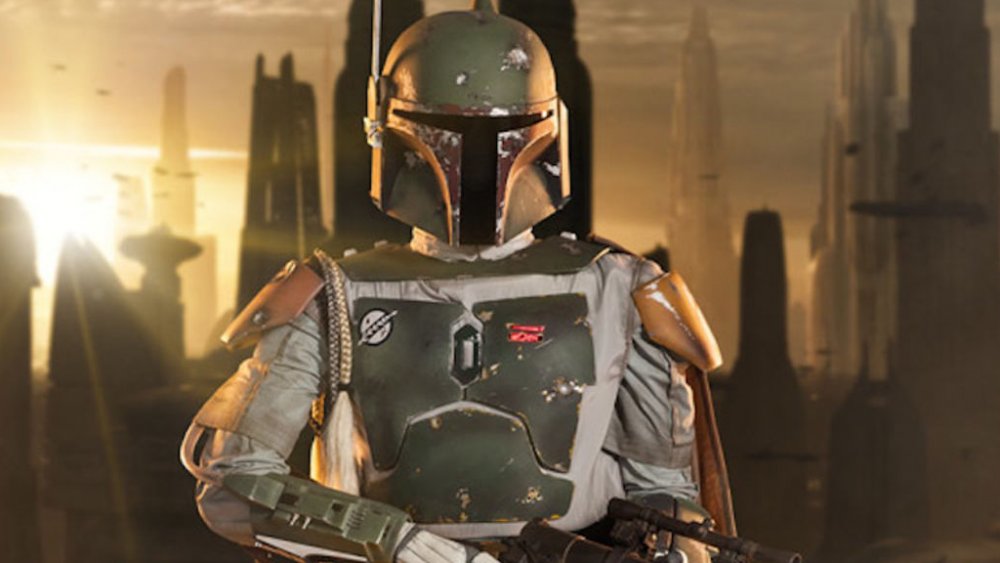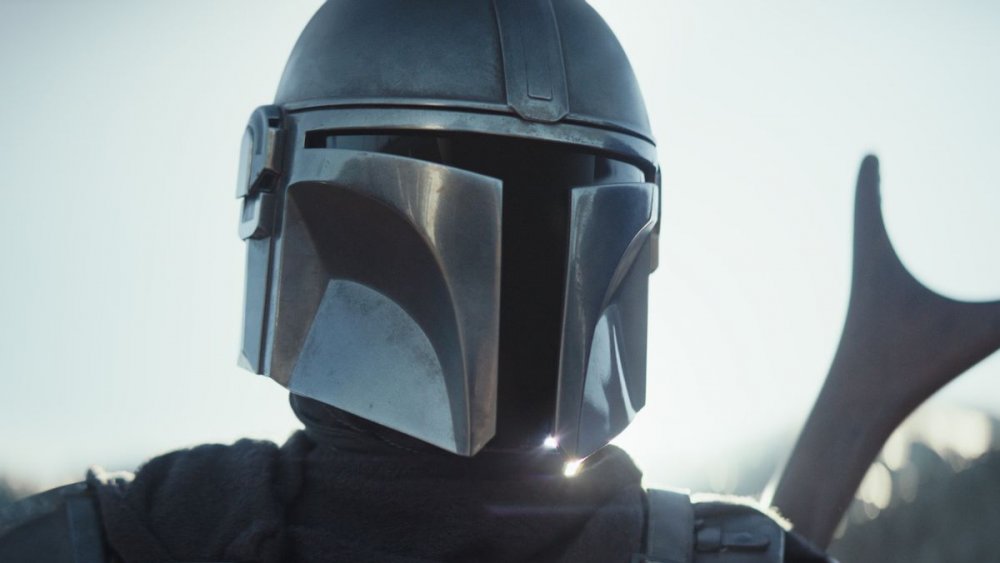The Differences Between The Mandalorian And Boba Fett Explained
The Mandalorian has proven itself to not only be one of the best original offerings on Disney+, but one of the best new shows on television, period. Its conflicted protagonist (Pedro Pascal) is a member of a dying race, a warlike yet honorable people who once inhabited the planet Mandalore in the time of the Old Republic. During the time period in which the series is set (in between the original and sequel film trilogies), they're a people whose numbers are dwindling fast, due to a long, long history of conflict — to say nothing of the fact that Mandalore's warriors were long ago forsaken by their own government, exiled to the moon of Concordia, where they were left to die out.
The history of Mandalore is a bit fluid, as the stewards of Star Wars extended canon have used the warrior race to fit the requirements of many (often conflicting) narratives. One thing that has never changed, though, is their distinctive armor — armor which has been very familiar to fans ever since the first appearance of the bounty hunter Boba Fett in Star Wars Episode V: The Empire Strikes Back.
Before the release of The Mandalorian, it was even speculated by some fans that the title character might actually be Boba Fett, as that character's fate has been retconned since his seemingly fatal plunge into the Sarlacc pit in Star Wars Episode VI: Return of the Jedi. It turns out that Boba is still alive, meaning that he may very well be wandering the galaxy during the events of The Mandalorian — but the differences between the two characters are many, and significant.
Boba Fett isn't Mandalorian
All of these differences stem from the most obvious one: Boba Fett isn't actually Mandalorian. He is a clone of Jango Fett, who claimed (although this may very well be false) to hail from Concord Dawn, a planet within the Mandalore system. Although Jango wore Mandalorian armor outfitted with the types of bells and whistles common to that worn by the warrior race, he had been disavowed by the Mandalorian government, which regarded him as nothing more than a scoundrel, a common mercenary whose only interest was in a paycheck.
This goes to the core of the differences between Boba Fett (who followed in his father's footsteps in becoming the most feared bounty hunter in the galaxy) and the Mandalorian, whose identity is very strongly tied to his homeworld. While both Boba and the Mandalorian are seen operating as bounty hunters, and both (generally) operate according to the codes of that profession, that and their armor is basically where the similarities end.
This is because, like his father before him, Boba Fett's code of honor is largely his own, untethered to any larger philosophy — which stands in stark contrast to the Mandalorian, whose code isn't just a personal preference, but his actual religion.
Mandalorians are warriors; Boba Fett is a mercenary
The Mandalorian states this explicitly in the series' second episode, when Kuiil (Nick Nolte) is attempting to help him recover the parts of his vessel which were stripped by jawas. Asked to put down his weapons before the negotiation begins, he simply says, "I'm a Mandalorian. Weapons are part of my religion." So, too, is Beskar steel — the substance from which much of the Mandalorian's armor is forged, and which is considered by members of his race to be a religious sacrament.
Boba Fett, by contrast, has no such spiritual connection to Beskar, his weapons, or Mandalorian culture. His use of Mandalorian armor and tactics is largely an accident; his father had used his loose (if even existent) connection to Mandalore to bolster his own reputation, and indeed, his use of Manadlorian armor was quite effective in striking fear into the hearts of his quarry.
According to Boba Fett's backstory, though, the bounty hunter essentially wore the armor because his father did. In extended Star Wars canon, Boba was even seen to have worn completely different armor before adopting dear old dad's style — and, rather than being allied with a cause or a culture, Boba has always been more mercenary than warrior, having run with bounty hunters since before he was even a teenager.
One could certainly make the case (and we are, right now) that the Mandalorian's connection to his dying culture and the ways of Mandalore make him a far more interesting character than Boba Fett ever was. They may both be a couple of bounty hunters in cool armor perpetually on the hunt for their next job, but the Mandalorian's reaction to the sticky situation in which he finds himself after taking custody of Baby Yoda is informed by more than his need for a payday. It's informed by the strong sense of honor that is typical of all Mandalorians — and it's even safe to say that if Boba Fett had found himself in the same situation, he might have decided to save himself a major hassle by simply terminating his green, cuddly target, and settling for the slightly smaller fee.


